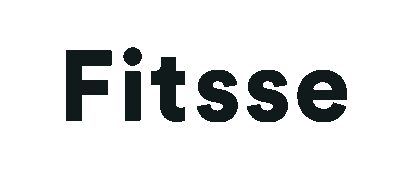In the realm of fitness and muscle building, nutrition plays a paramount role. Among various macronutrients, protein stands out as the cornerstone for muscle repair, growth, and overall athletic performance. For individuals engaged in intense workouts, whether it’s weightlifting, endurance training, or any form of physical activity, optimizing protein intake becomes imperative. In this comprehensive guide, we delve deep into the science behind high-protein nutrition for workouts, exploring its benefits, sources, recommended intake, and strategies for implementation.
Understanding Protein and Its Importance
Proteins are complex molecules composed of amino acids, often referred to as the building blocks of life. They serve myriad functions in the body, including but not limited to muscle repair, hormone production, enzyme synthesis, and immune function. However, in the context of workouts, their role in muscle repair and growth takes center stage.
During intense physical activity, muscle tissues undergo microscopic damage. Proper nutrition, particularly adequate protein intake, facilitates the repair and growth of these muscles, leading to enhanced strength, endurance, and overall athletic performance. Therefore, individuals aiming for muscle gain or improved physical fitness must prioritize protein consumption as part of their dietary regimen.
Benefits of High-Protein Nutrition for Workouts
- Muscle Repair and Growth: The primary benefit of high-protein nutrition is its ability to support muscle repair and growth. After workouts, muscles undergo a process called muscle protein synthesis (MPS), where new proteins are synthesized to repair and strengthen muscle fibers. Adequate protein intake provides the necessary amino acids for this process, ensuring optimal recovery and muscle growth.
- Increased Strength and Endurance: Protein plays a crucial role in enhancing muscular strength and endurance. By promoting muscle repair and growth, high-protein diets help individuals recover faster between workouts, allowing for more frequent and intense training sessions. Additionally, certain amino acids, such as branched-chain amino acids (BCAAs), have been shown to reduce muscle fatigue during exercise, further improving performance.
- Weight Management: Protein-rich foods are often more satiating than carbohydrates or fats, leading to reduced appetite and calorie intake. Incorporating adequate protein into your diet can help control hunger and cravings, making it easier to maintain a healthy weight or support fat loss goals without sacrificing muscle mass.
- Preservation of Lean Body Mass: During periods of calorie restriction or weight loss, there is a risk of losing not only fat but also lean muscle mass. High-protein diets help mitigate this loss by preserving lean body mass, ensuring that the weight lost comes primarily from fat stores rather than muscle tissue.
Recommended Protein Intake
The optimal protein intake for individuals engaged in regular workouts depends on various factors, including body weight, fitness goals, training intensity, and overall dietary habits. While there is no one-size-fits-all recommendation, several guidelines can help determine an appropriate protein intake:
- Protein Requirements Based on Body Weight: A commonly cited recommendation for athletes and active individuals is to consume between 1.2 to 2.2 grams of protein per kilogram of body weight per day. Those engaged in intense resistance training or endurance activities may benefit from higher protein intakes within this range.
- Timing of Protein Consumption: Distributing protein intake evenly throughout the day, with a focus on consuming protein-rich meals or snacks before and after workouts, can optimize muscle protein synthesis and recovery. Aim to include a source of protein in each meal and snack to maintain a steady supply of amino acids for muscle repair and growth.
- Protein Quality: Not all protein sources are created equal. Animal-based proteins, such as meat, poultry, fish, eggs, and dairy products, provide high-quality protein with all essential amino acids in the right proportions. Plant-based proteins, including legumes, tofu, tempeh, and quinoa, can also be valuable sources of protein but may require careful planning to ensure adequate intake of essential amino acids.
- Supplements: While whole food sources should form the foundation of your protein intake, supplements such as whey protein, casein protein, and plant-based protein powders can be convenient options to boost protein intake, especially for those with higher protein requirements or dietary restrictions.
Sample High-Protein Meal Plan for Workouts
To illustrate how high-protein nutrition can be incorporated into a workout regimen, here’s a sample meal plan designed for an individual engaging in resistance training:
- Breakfast: Scrambled eggs with spinach and feta cheese, whole-grain toast, and a side of Greek yogurt topped with berries.
- Mid-Morning Snack: Protein smoothie made with whey protein powder, banana, almond milk, and peanut butter.
- Lunch: Grilled chicken breast salad with mixed greens, cherry tomatoes, cucumbers, avocado, and vinaigrette dressing.
- Afternoon Snack: Cottage cheese with sliced almonds and apple slices.
- Pre-Workout Snack: Whole-grain crackers with hummus.
- Post-Workout Meal: Grilled salmon with quinoa and steamed broccoli.
- Evening Snack: Greek yogurt with honey and walnuts.
Conclusion
High-protein nutrition is a cornerstone of optimal performance and recovery for individuals engaged in workouts and physical activity. By prioritizing protein intake and incorporating it into a well-balanced diet, individuals can support muscle repair and growth, enhance strength and endurance, and improve overall athletic performance. Whether you’re a competitive athlete, a fitness enthusiast, or someone simply looking to improve their health and physique, understanding the importance of high-protein nutrition and implementing it effectively can be the key to achieving your fitness goals.
Recent studies suggest that consuming a protein-rich meal within two hours post-exercise can significantly enhance muscle protein synthesis, making it a crucial window for recovery. Additionally, emerging research highlights the potential benefits of plant-based protein sources, such as pea and rice protein, which can be as effective as animal-based proteins when consumed in adequate amounts.
With the rise of personalized nutrition, some fitness enthusiasts are turning to genetic testing to determine their optimal protein intake, tailoring their diets to their unique genetic makeup for improved results.
Innovations in protein supplements now include options fortified with probiotics to aid digestion and absorption, offering an added benefit for those with digestive sensitivities.















One Comment